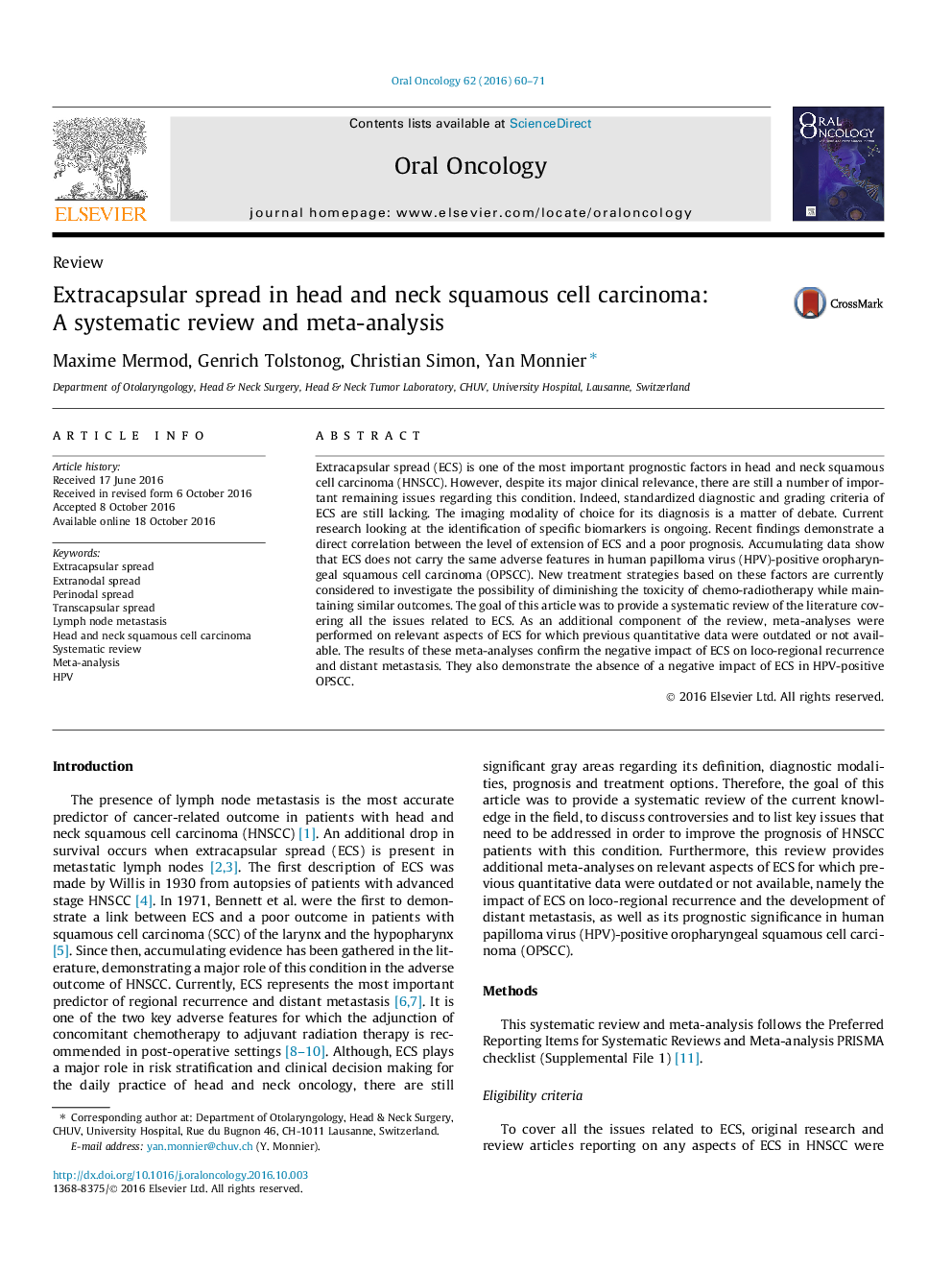| کد مقاله | کد نشریه | سال انتشار | مقاله انگلیسی | نسخه تمام متن |
|---|---|---|---|---|
| 6054523 | 1586248 | 2016 | 12 صفحه PDF | دانلود رایگان |
- ECS is a major prognostic factor in HNSCC.
- No standardized histological diagnostic and grading criteria are available for ECS.
- There is a correlation between the level of extension of ECS and a poor prognosis.
- Cisplatin-based chemo-radiotherapy is the recommended treatment for ECS.
- ECS is not an adverse prognostic factor in HPV-positive OPSCC.
Extracapsular spread (ECS) is one of the most important prognostic factors in head and neck squamous cell carcinoma (HNSCC). However, despite its major clinical relevance, there are still a number of important remaining issues regarding this condition. Indeed, standardized diagnostic and grading criteria of ECS are still lacking. The imaging modality of choice for its diagnosis is a matter of debate. Current research looking at the identification of specific biomarkers is ongoing. Recent findings demonstrate a direct correlation between the level of extension of ECS and a poor prognosis. Accumulating data show that ECS does not carry the same adverse features in human papilloma virus (HPV)-positive oropharyngeal squamous cell carcinoma (OPSCC). New treatment strategies based on these factors are currently considered to investigate the possibility of diminishing the toxicity of chemo-radiotherapy while maintaining similar outcomes. The goal of this article was to provide a systematic review of the literature covering all the issues related to ECS. As an additional component of the review, meta-analyses were performed on relevant aspects of ECS for which previous quantitative data were outdated or not available. The results of these meta-analyses confirm the negative impact of ECS on loco-regional recurrence and distant metastasis. They also demonstrate the absence of a negative impact of ECS in HPV-positive OPSCC.
Journal: Oral Oncology - Volume 62, November 2016, Pages 60-71
